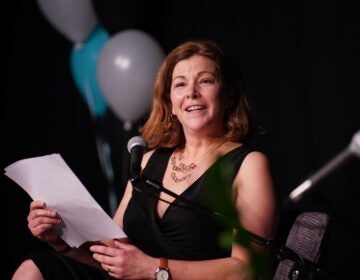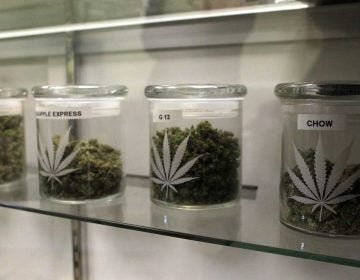Who gets to be called ‘doctor’?
Go to med school, earn an M.D. and the “Dr.” honorific gets tacked on to your last name. Some women — and Ph.D.s — say they get the courtesy title, and respect, less often.
Listen 06:49
We call physicians "doctor." Should we do the same for people with PhDs? (Credit: Bigstock)
This story is from The Pulse, a weekly health and science podcast.
Subscribe on Apple Podcasts, Stitcher or wherever you get your podcasts.
Molecular biologist Adam Ruben has a Ph.D.
There was one time when he made a conscious choice to refer to himself as Dr. Ruben — when he emailed an airline to complain about a messed up flight.
“We had to spend a night in some city and I was trying to get a refund for our hotel bill, so I signed the email Dr. Ruben,” he said. “And I know that’s kind of an icky thing to do but I have heard that you get better service when you use the term doctor.”
It kind of worked: He got his refund — after three months.
“It’s not outright wrong and the world should forgive me,” he said.
Ruben has been thinking about the doctor honorific for a while. He polled his friends and acquaintances with Ph.D.s on Facebook and Twitter about whether or not they call themselves doctor.
Some said they’ve earned it. Others said it seems a little pretentious.
“A surprising number of people all had the same concern about using the term doctor: if they were going to be on an airplane when somebody needs a doctor,” Ruben said.
This sort of happened to Ruben several years ago, but when he was on the ground.
Besides being a biologist, he’s also a writer and comedian. He was at a Story Collider storytelling event, performing for an audience of mostly graduate students.
“And somebody actually had a medical emergency in the middle of the show. He fainted and needed an ambulance,” Ruben recalled.
As he described it at the time, someone asked if there was a doctor in the room and about 200 people with Ph.D.s kind of looked around at each other frantically.
Some EMTs helped the guy. He was okay in the end and the show went on.
Subscribe to The Pulse
After checking in on social media, Ruben wrote about his informal poll for the journal Science. He heard from female engineers with Ph.D.s who said they are under-represented in their field, and feel like they need to put doctor in front of their names to get the same respect that male engineers get.
Epidemiologist Beth Linas also earned a Ph.D., and she wants media outlets to refer to people with Ph.D.s as doctor, especially if we’re interviewing them about their area of expertise.
“Someone comes up [to me] on the street and says hello to me, they can address me as Beth, but if I’m being called upon for my background in infectious disease, epidemiology or digital health which is the other area that I study, I think I should be recognized as Dr. Beth Linas.”
Linas has been thinking about this issue and wrote a commentary about the congressional hearings with Supreme Court nominee Brett Kavanaugh and research psychologist Christine Blasey Ford, who accused Kavanaugh of sexually assaulting her when they were in high school.
“There was a lot of chatter online and on Twitter about how in written media, she wasn’t being addressed as Doctor Ford, I started noticing it in other publications and other outlets,” said Linas.
Some NPR listeners complained about the “insidious bias” of the radio network calling Kavanaugh “Judge Kavanaugh” but not calling Ford “Dr. Ford.”
The NPR ombudsman explained that like many media outlets, NPR follows the Associated Press stylebook, which says if someone practices medicine, NPR calls them doctor. If it’s someone with a Ph.D., it’s up to the individual media outlet.
On the radio, we don’t have a lot of time, and every word counts. Saying someone is a doctor or saying they have a Ph.D. can be a little vague. Ultimately that doesn’t give the listener much information. So for clear and efficient communication, our policy at “The Pulse” is to introduce someone as an epidemiologist, or pediatrician — being specific about a person’s expertise when we can.
Linas said her concern comes from an issue of representation.
“There are a lot of women, and particularly women of color that really struggle to make their way in science and stay in science, and we face a lot of obstacles, and I think it’s important for women also to be recognized.”
There’s a study that backs her up: researchers found that male doctors introduce their male colleagues as “Dr.” around 70 percent of the time, but introduce their female colleagues as doctor a little less than half the time.
Linas says if media outlets refer to people with Ph.D.s as doctor, especially when we’re interviewing them about their area of expertise, then it shouldn’t be that hard to tell who is the kind of doctor who can help you when someone needs an ambulance — and who’s best suited to give you statistics on the next flu outbreak.
WHYY is your source for fact-based, in-depth journalism and information. As a nonprofit organization, we rely on financial support from readers like you. Please give today.







